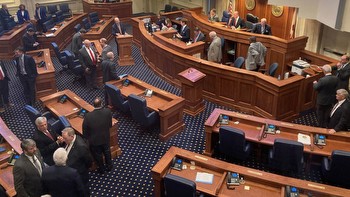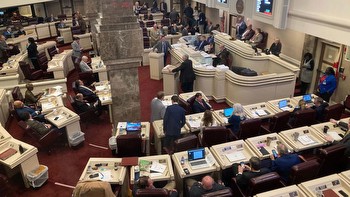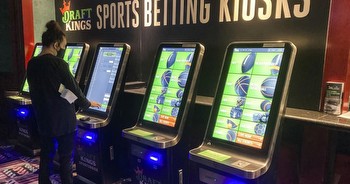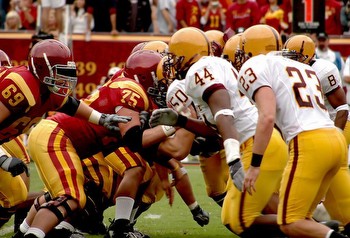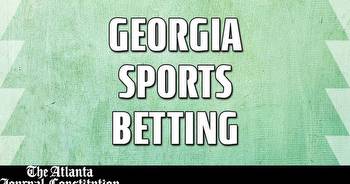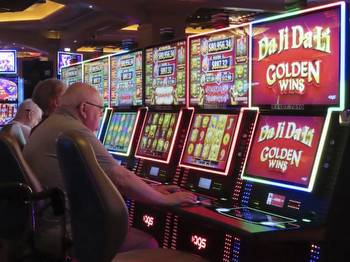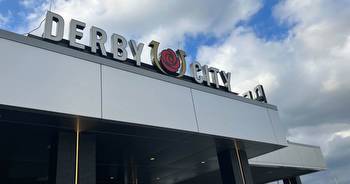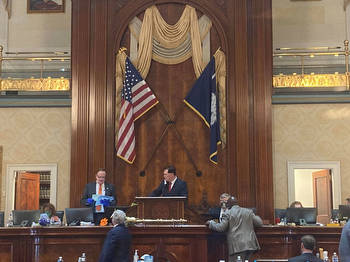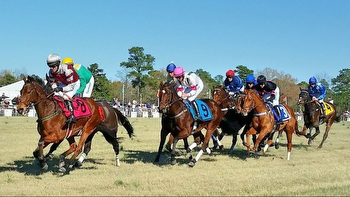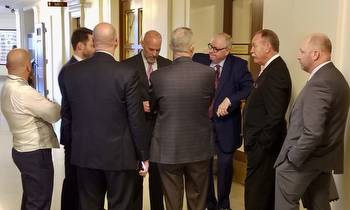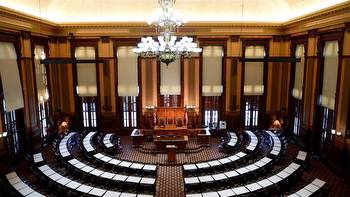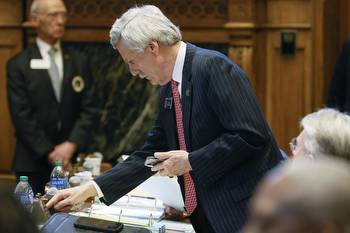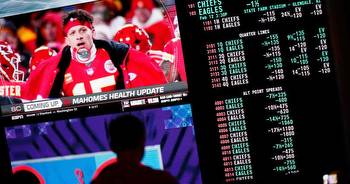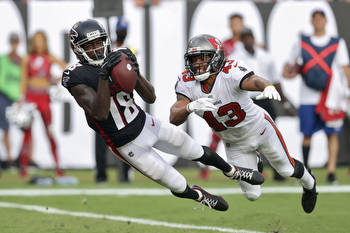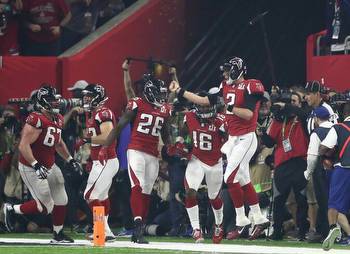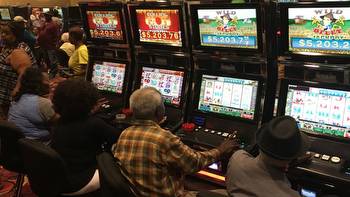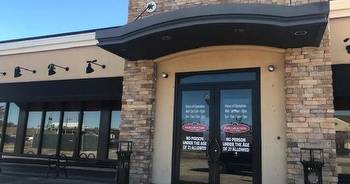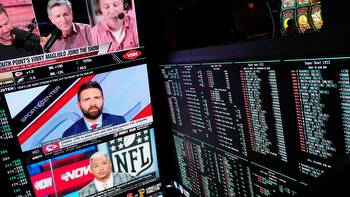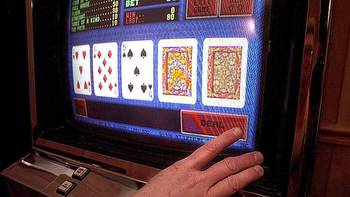Historical horse racing is now illegal in Louisiana. See why
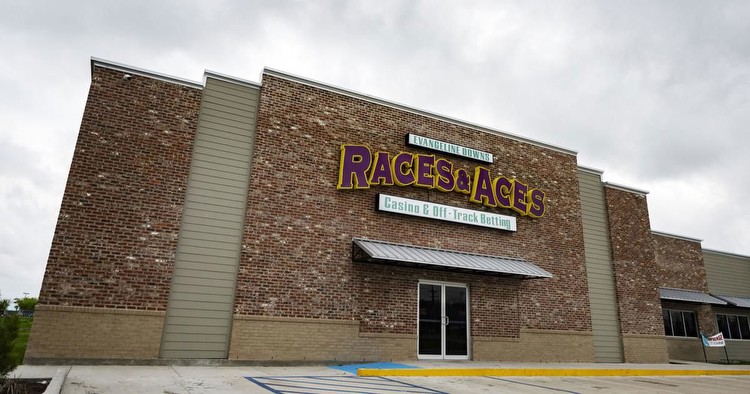
Three years ago, state lawmakers asked barely any questions before the Louisiana Legislature passed a new form of gambling that was pushed by several powerful lawmakers, including then-Senate President Page Cortez.
The lack of scrutiny was exposed when a Baton Rouge judge ruled last week that that type of gambling — which is called historical horse racing and is played on devices similar to slot machines — is illegal because it is an expansion of gambling not permitted under the state Constitution.
The Constitution requires voter approval parish by parish for each new form of gambling, Judge Richard “Chip” Moore III said. Yet no voters have been allowed to decide whether to approve the machines, which have been in use at Off Track Betting parlors operated by the state’s four racetracks.
“No historical horse racing may be conducted in any parish of this state unless and until voters in that parish where historical horseracing is to be conducted approve such gaming by a majority vote” under the Constitution, Moore said.
His decision has allowed the machines to keep operating because more legal action is likely. There are about 630 machines at 17 different OTB parlors across the state, according to the Louisiana Racing Commission, which regulates the activity.
Churchill Downs, which lobbied hardest for the machines and has the lion’s share of the market in Louisiana, did not respond to requests for comment.
Nor did Boyd Gaming, which operates machines at OTBs connected with its ownership of Delta Downs and Evangeline Downs.
A gambling industry divided
The legal case pits the video poker industry against the racetrack owners.
The video poker interests accepted legalization of the historical horseracing machines in 2021 after the racetracks agreed to limit their presence to 50 machines per existing OTBs, said Alton Ashy, the lead video poker lobbyist.
But when Churchill Downs, owner of the New Orleans Fair Grounds, sought after the legislation passed to more than double the number of its OTBs — from 13 to 28 — the video poker industry filed suit to block the machines, Ashy said. Having more OTBs would have led to more historical horseracing machines and more revenue for Churchill Downs, at the expense of the video poker industry.
The proposed expansion, Ashy said, “violated the spirit of the compromise.”
John Georges, who owns The Times-Picayune | The Advocate with his family, owns video poker machines but was not part of the lawsuit, Ashy said.
Thomas Benjamin, an attorney who represents the video poker interests, noted that state and local governments receive no revenue from the historical horseracing machines. Instead, the money goes to the horse racing industry. That’s different from video poker, which provides tax revenue for district attorneys’ offices and local governments.
Moore sided with the video poker industry’s argument that the historical horseracing machines were an expansion of gambling that required approval of voters in each parish where the racetracks placed them. Parish approval for new forms of gambling has been required since voters amended the Constitution in 1996.
The racetracks argued that they didn’t need the nod of voters because the machines simply represented an extension of parimutuel gaming, a decades-old activity in Louisiana that governs how betting is conducted in the horse race industry.
Similar to slot machines
Historical horseracing machines operate much like slot machines.
In an unusual move, Cortez, R-Lafayette, appeared before the House Commerce Committee in 2021 to support an amendment to Senate Bill 209 by then-state Sen. Gary Smith, D-Norco. The amendment would legalize historical horseracing machines. The Senate president and House speaker rarely assist other lawmakers when they present their bills in committee.
The committee was so deferential to Cortez, who had the power to single-handedly kill a House member’s bill, and Smith, who chaired an important Senate committee, that the lawmakers approved the change to SB209 without asking a question or having them explain it.
Cortez did offer a brief explanation afterward, saying that the person playing the machine would not know the name, date or place of the previously run race they were betting on.
He pitched the machines as a new source of revenue for the ailing horse racing industry, which has suffered as casinos, fantasy betting and other forms of gambling have become more popular.
“It will put more money into purses,” Cortez said. “It’s just an opportunity for us to keep up with other states.”
He said each race on the machine would last one or two minutes.
In fact, most bettors hit the play button every few seconds as if it were a slot machine and don’t take the time to focus on the details of the previous race, said Gene Mills, president of Louisiana Family Forum, in expressing opposition to the bill.
After the House Committee approved SB 209, then-state Rep. John Stefanski, R-Crowley, presented it to the full House for approval.
“It’s just an alternative way to do parimutuel wagering,” Stefanski said. “This is a horseman bill in every shape and form.”
Only two legislators asked substantive questions about the bill, with one of them, Rep. Raymond Crews, R-Bossier City, questioning whether it was legal.
Stefanski assured him that it was.
No senators asked questions of Smith during his minute-long presentation of SB 209 for final approval in the Senate.
“There were a lot of questions we were able to answer behind the scenes,” Smith said recently, adding, “It’s always disappointing to have a piece of legislation declared unconstitutional.”
Cortez said he expects Moore’s ruling to be repealed and will await the final court ruling.
Said Stefanski: “With the information provided to me by the author and the supporting material, it was my opinion that it was not a new form of gaming. After reviewing the court’s recent ruling, it appears that it is.”

